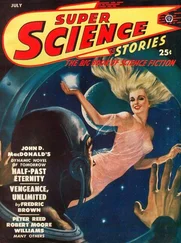Джон Макдональд - More Good Old Stuff
Здесь есть возможность читать онлайн «Джон Макдональд - More Good Old Stuff» весь текст электронной книги совершенно бесплатно (целиком полную версию без сокращений). В некоторых случаях можно слушать аудио, скачать через торрент в формате fb2 и присутствует краткое содержание. Город: New York, Год выпуска: 1984, ISBN: 1984, Издательство: Alfred a Knopf, Жанр: Детектив, на английском языке. Описание произведения, (предисловие) а так же отзывы посетителей доступны на портале библиотеки ЛибКат.
- Название:More Good Old Stuff
- Автор:
- Издательство:Alfred a Knopf
- Жанр:
- Год:1984
- Город:New York
- ISBN:978-0-394-53898-3
- Рейтинг книги:4 / 5. Голосов: 1
-
Избранное:Добавить в избранное
- Отзывы:
-
Ваша оценка:
- 80
- 1
- 2
- 3
- 4
- 5
More Good Old Stuff: краткое содержание, описание и аннотация
Предлагаем к чтению аннотацию, описание, краткое содержание или предисловие (зависит от того, что написал сам автор книги «More Good Old Stuff»). Если вы не нашли необходимую информацию о книге — напишите в комментариях, мы постараемся отыскать её.
In short, here is one of America’s most gifted and prolific storytellers at his early best — a marvelously entertaining collection that will delight Mr. MacDonald’s hundreds of thousands of devoted readers.
More Good Old Stuff — читать онлайн бесплатно полную книгу (весь текст) целиком
Ниже представлен текст книги, разбитый по страницам. Система сохранения места последней прочитанной страницы, позволяет с удобством читать онлайн бесплатно книгу «More Good Old Stuff», без необходимости каждый раз заново искать на чём Вы остановились. Поставьте закладку, и сможете в любой момент перейти на страницу, на которой закончили чтение.
Интервал:
Закладка:
The wind that touched his face as he stepped down onto the platform was the cool breath of Cranesbay. Dampness and the sea. Night, rain and the sea. The station was a square ugly room with a white tiled floor, a smell of coffee and rest rooms.
A drunk sat on one of the benches, mumbling eternal truths which no one would remember. Behind the ticket window a sallow man in a green eyeshade was reading a magazine.
It was as though he had never been away.
The Ocean Bay Hotel, six blocks from the ocean, was but two blocks from the station. He walked it, with the moisture, half rain, half mist, beading his face.
The lobby was empty. Behind the desk a man in a gray smock placed the registration card on the counter, read the upside-down handwriting with practiced ease.
“Ah, Mr. Otis!” he said, rubbing chubby hands together. “We wondered if you’d have time to visit Cranesbay.”
Matt looked at him in sudden surprise. He had begun to think of himself as having no interest for anyone in Cranesbay.
“Oh!” he said. “There was something in the papers?”
“Two columns, Mr. Otis. A review of your new book and sort of a biography and a little about your work in China.” He laughed. “You’ve become one of Cranesbay’s favorite sons, Mr. Otis. I can give you a nice suite on the eighth-floor corner. You can see the ocean from there.”
Matt said, “Fine. Thank you.”
A lean, yawning bellhop materialized and the desk clerk handed him the key. The bellhop ran the elevator, left it with the door open while he carried the bag down to the suite.
When he was alone, Matt took off his coat and hat, turned out the lights, flung the window up and stood looking toward the sea.
He could hear the distant whisper of the surf against the rocks. It made the same noise as it had on that night long ago when...
He grew conscious of the sound of the sea and thought at first that he was in his bed and he wondered why the sea should sound so loud. A storm? He lay with his eyes closed, listening to its muted thunder, gradually feeling the beginning of the pain.
The pain crept slowly over him, and he wondered almost objectively if the pain would pass some mystic boundary where he could no longer remain motionless, but must thrash about and scream.
His cheek was against wetness. He grew conscious of being fully dressed. He opened his eyes, moved his fingers about. He could see nothing. His hand touched grass, a twig, small stones.
The pain came back and part of it was above his ear. He touched it, felt the huge lump, the opened gash across it. The rest of the pain was in his hips, his loins. He touched his hip with his fingers, felt the unfamiliar shape. Distortion.
I am hurt, he thought with sudden surprise. I am on the ground and I am hurt. My body is the wrong shape.
When the pain came back the third time, it dragged him down into darkness.
When he awakened, the pain was not so bad. The cold numbed him. He reached out and his hand brushed against something that was soft and like ice. He tried to identify it, but his hand was too numbed. With infinite effort he rolled onto his hand, warming it with his body.
At last, the warmed hand outstretched, he traced with gentle fingers the outline of brow, the gentle arch of nose, the softness of lips. When he touched the eye, the lid was up, and his finger rested for a moment on the naked eyeball, feeling the moistness, feeling no quiver.
It was then that he screamed for the first time...
Feeling enormously weary, Matthew Otis turned away from the window and switched on the light. All of the strain that had gradually increased since the day he had walked up the gangplank at Hong Kong seemed to break within him, leaving him impossibly weary.
He pulled off his clothes, flung them carelessly aside and dropped onto the soft bed, the light still shining. Down into sleep, down into vast sleep...
He had told General Soong that the position was bad. The Honorable 21st Division had dug in on the forward slope of the hill. During the long, hot, dusty morning the artillery attached to the 8th Route Army had marched up the slope, pounding across the shallow holes, the places scooped in the earth, while from beyond the crest their own artillery answered. To his right a fragment caught a Chinese soldier in the throat. With a strange bubbling scream the man plunged up out of the hole, ran in a staggering, blundering stride down the slope to fall at last, rolling to a stop.
During a lull in the shelling, two men crept out and stripped the corpse. At noon the body had begun to bloat.
Far down on the plain they began to advance. The small slow figures of the soldiers of the 8th Route Army. Seeking shelter behind the rocks that littered the slope. Coming constantly closer.
Near dusk they were within rifle shot. At a signal they burst from cover, running up the slope, their faces showing the strain of fear and effort.
Then he saw her. She was running through the dusk. She was naked. Her long hair fell, golden and shining, down her back. She smiled as she ran toward him, and her voice, echoing, was saying, “Matthew, darling! Matthew Otis!”
He jumped up and screamed at them to stop shooting at her. But his voice was gone and the scream came as a soft whisper. He wanted to run to her, to drag her out of danger. But he could not move.
Even as she leaped over the naked body of the bloated soldier he saw the slugs write a wavering message across her white body. She came toward him in a stumbling run, falling as the dusk turned to night.
He reached out a hand in the darkness, traced the line of brow, the arch of nose, his fingertip resting for a moment on the unquivering eyeball.
“You’re dead, Alicia,” he said softly.
“That’s right, Matt. Dead, dead, dead, dead, dead...”
He woke with a start, his body wet with perspiration. He felt weak and nervous. He padded into the bathroom, and stood under the shower, trying to wash away the memory of the dream.
In 1872 James Furnivall, blacksmith, walked into the village of Cranesbay. Three days later he had set up his shop. He was twenty years old.
Sixteen years later his only son, Roger Furnivall, was born. In 1908 James, then fifty-six, and his son, then twenty, enlarged the shop to take care of repairs for those new gadgets called automobiles.
When Roger was thirty, he married a Boston girl named Patricia Bowen and incorporated the company as the Furnivall Pneumatic Tool Company. It covered an entire city block, having acquired nearly two million in war contracts.
In 1927 Roger’s father died one week before Patricia died in childbirth, leaving Roger with two daughters. One four, named Patience, and one infant, named Susan.
In 1948, at nine o’clock in the morning after Matthew Otis’ return, Patience Furnivall stood in her bedroom and looked toward the sea. To her left she could see the Furnivall Pneumatic Tool Company. Beyond it were the shining steel threads of railroad sidings. Beyond the sidings was the ocean. On the horizon a coastwise vessel made a gray pattern of smoke.
The plant buildings were old, badly in need of repairs. The recent war years had not been profitable. She and Evan Cleveland, plant manager, had made a bad guess on equipment purchases.
She sighed and turned away from the window. The maid knocked quietly at her door and said, “Mr. Bedford is in the sun room, Miss Furnivall.”
She took a quick glance in the mirror, neither approving nor disapproving what she saw. She saw a tall woman of twenty-five. Tall and pale with black hair drawn back so tightly that it gave her high-cheekboned face almost an Oriental look. Her lips were full and warm, the only spot of color in her face.
Here it is, she thought. Just walk downstairs and sell out something that started when my grandfather walked into this town with a pack on his back and a sledge in his hand. I can remember him. Tall and strong and straight until the day he died. If only Dad had lived as long as he did. The war killed Dad. Sixteen hours a day in the plant killed him. Square your shoulders, Patience. Go smiling down the stairs and sell your birthright to Roy Bedford.
Читать дальшеИнтервал:
Закладка:
Похожие книги на «More Good Old Stuff»
Представляем Вашему вниманию похожие книги на «More Good Old Stuff» списком для выбора. Мы отобрали схожую по названию и смыслу литературу в надежде предоставить читателям больше вариантов отыскать новые, интересные, ещё непрочитанные произведения.
Обсуждение, отзывы о книге «More Good Old Stuff» и просто собственные мнения читателей. Оставьте ваши комментарии, напишите, что Вы думаете о произведении, его смысле или главных героях. Укажите что конкретно понравилось, а что нет, и почему Вы так считаете.
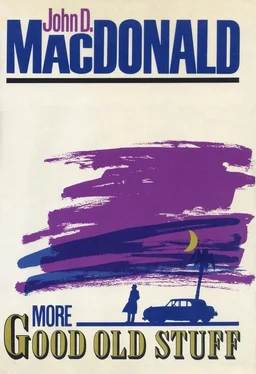
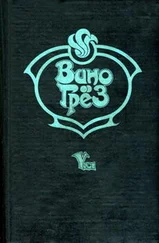
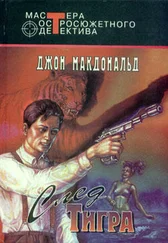
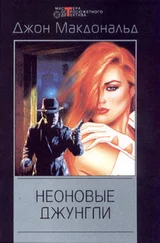
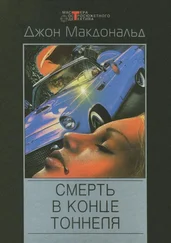
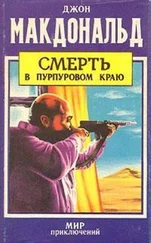



![Джон Макдональд - Wine of the Dreamers [= Planet of the Dreamers]](/books/430039/dzhon-makdonald-wine-of-the-dreamers-planet-of-thumb.webp)

